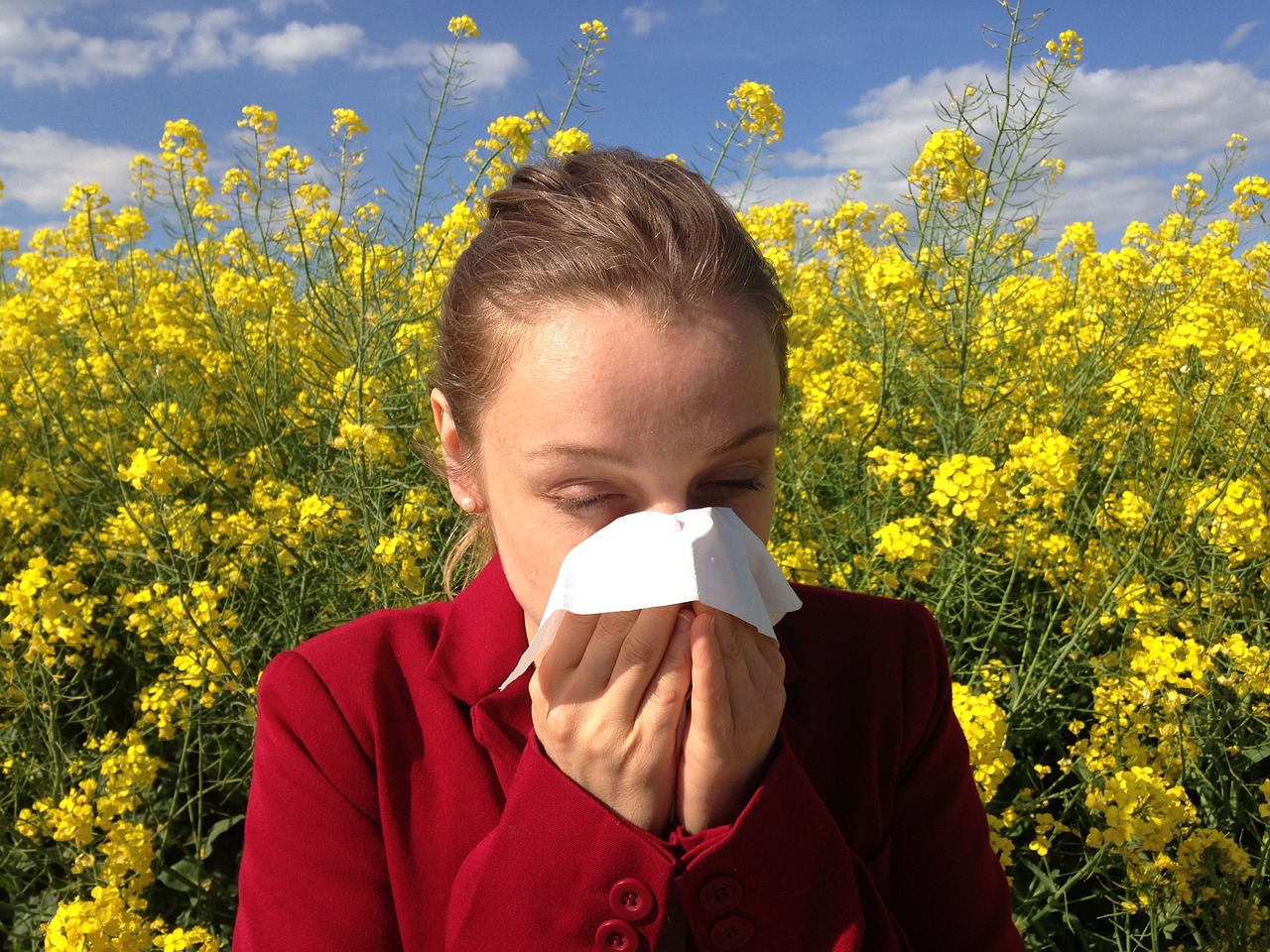Allergies – Sneezing sniffing & scratching out of control?
Let’s Talk Allergies and how to manage them
The prevalence of allergy and related diseases affects at least 100 million people worldwide. In general the prevalence of food allergies has increased to more than 50% in adults and more than 70% in children in the last few years. Food related allergies cause a wide variety of illnesses ranging from skin rashes and headaches to chronic intestinal diseases.
How often do you pop an anti histamine tablet with itchy eyes, sneezing fits or skin rashes? In recent years this has become standard practice to manage allergy reactions.
Keep reading to learn about new information and research in managing your allergy related symptoms.
Sneezing, Sniffing and Scratching?
Does your dog send you into a sneezing frenzy? Do certain foods leave you bloated and headachy? Or do pollens and certain grasses leave your skin desperately itchy?
If you answered yes, then you know this is a daily reality for you and the millions of people living with allergic conditions such as hay fever, asthma, food allergies and eczema.
So why does your body react this way?
Essentially, your body believes that these otherwise harmless substances (animal hair, foods and grasses) are threatening. Hence, when it comes into contact with these substances, known as allergens, your immune system releases large amounts of the chemical histamine.
Histamine is like a burly bouncer outside a club: its job is to muscle an allergen out of your body by any means necessary. Some of the ways histamine does this job is by producing redness and inflammation, a running nose, itchy eyes, skin reactions, constricted airways, bloating and diarrhoea; manifestations of allergic disease.
Allergies are Like Onions, They Have Layers
Current approaches to allergy management centre on both allergen avoidance and reducing histamine (e.g. antihistamine medication). But why does your body think these substances are harmful and mount this response against them in the first place?
Several contributing factors lead your body’s immune system to respond this way, including:
- Inflammation within your digestive tract (where the majority of your immune system is found).
- Damage to the lining of your digestive tract commonly known as ‘leaky gut’, allowing small particles (undigested food, bacteria and/or toxins) to pass through to the blood stream causing inflammation in other areas of the body).
- Low levels of good bacteria and/or an overgrowth of bad bacteria within your intestine that interferes with your body’s immune response.
Addressing the Roots of Your Reactivity
Truly holistic allergy management encompasses symptomatic relief while also retraining the body’s immune system to tolerate ‘threatening’ allergens. One way you can achieve this is by following an Allergy and Reactivity Reduction Program guided by your Naturopath, Cindi Young.
This specially designed and professionally supported program incorporates carefully selected herbs and nutrients combined with tailored diet and lifestyle recommendations; to help repair your gut, improve your ability to tolerate allergens, and reduce your reactive symptoms.
Ways to Reduce Reactivity & Manage your Allergies
A number of herbs and nutrients can help you manage your symptoms of allergy and reactivity; by helping to restore balance to your immune system:
- Avoid processed sugar and processed fats: excess calories from these sources are stored as fat, especially around your waistline. They also encourage dysbiosis within your digestive tract.
- Reduce chemical exposure in foods. Organic is best if possible.
- Stress Management. Stress can contribute to allergic reactions.
- Nutrients including Zinc can help support your immune system
- Aller-7®: This unique combination of seven traditional Ayurvedic herbs has antihistamine and anti-inflammatory actions – key to providing you with symptomatic relief.
- Quercetin and Bromelains: These potent antioxidant nutrients help retrain your immune system, minimise respiratory congestion, and reduce mucus production.
- Reishi and Shiitake: Medicinal mushrooms support healthy immune system function and neutralise allergens, along with reducing wheeze and excess mucus production.
A Tolerable Diet
Following a prescribed diet in conjunction with specialised supplementation greatly assists in reducing symptoms and building tolerance to allergens. Cindi Young, your naturopath will recommend a specific dietary plan depending on your symptom presentation and health history.
While following the Allergy and Reactivity Reduction Program you will ‘rest’ from foods that may be creating inflammation and damage within your gut, giving your immune system an opportunity to ‘reset’ and become more tolerant.
Time to Breathe Easy
Now is the time to address those irritating allergic symptoms by tackling the underlying causes. Completing this program can help you gain control of your reactivity and increase your tolerance levels, leading to a reduction in symptoms.
Imagine indulging in the foods and activities you enjoy; patting your dog without sneezing, eating the foods you love without bloating, or having a picnic in the grass without itching – now that would be life changing!
Cindi Young, is a leading Gold Coast Naturopath. She has a special interest in allergy management, as a life time sufferer of allergy related illnesses. She is an experienced naturopath and will find the best treatment solutions to help you manage your allergies and reactivity for life.
Cindi Young is available for naturopathic consultations at The Cycle of Life in Robina, Gold Coast and at Parkes Ave Dispensary in Byron Bay. She is also available for skype and phone consultations Australia wide.
Imagine a life without experiencing allergies every day?
Don’t forget to subscribe at the bottom of the page to stay up to date with latest news.


